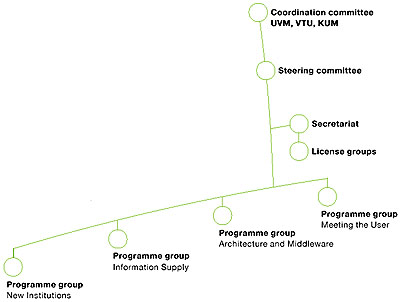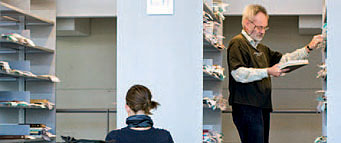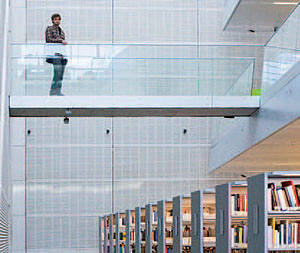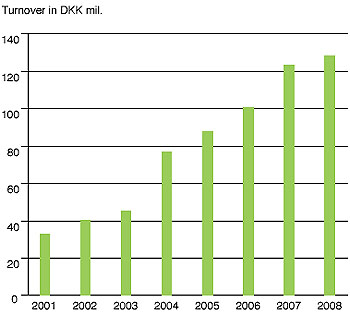

Organisation
Coordination committee
The overall management of DEFF is handled by an inter-ministerial coordination committee representing the Ministry of Culture (KUM), Ministry of Science, Technology and Innovation (VTU) and Ministry of Education (UVM). The coordination committee has the overall decision-making competency for DEFF as a whole. The committee makes overall decisions concerning DEFF’s strategy and development plan as well as the relevant budget framework.
Steering committee
The steering committee develops DEFF’s overall strategy and approves strategy, action plans and projects from the programme areas.
Secretariat
Secretariat function and the daily administration of DEFF are placed in the Danish Agency for Libraries and Media.
The secretariat’s areas of responsibility include administration of licenses, projects, homepage and servicing coordination committee, steering committee and programme areas.
Organisation diagram for DEFF

Programme areas
The programme groups consist of central members of staff from various libraries. The programme areas prepare a strategy and action plan and submit it to the steering committee. These action plans form the basis for the concrete implementation of the strategy and for budgeting. The programme areas can apply to the steering committee for financial support for activities. The work in the programme areas is organised in the four programme groups:
- Information Supply
- Architecture and Middleware
- Meeting the User
- New Institutions
Each programme group has defined primary action lines in the area’s strategy and action plan.
Action lines of the programme groups
Information Supply
- Global information supply
- Research publication and open access
- Research data and open access
- Teaching materials and open access
Architecture and Middleware
- Consolidation of IT systems
- Integrated search
- Technical infrastructure
Meeting the User
- Potentials in the exploitation and usage of web 2.0 in DEFF libraries
- Knowledge about methods for identifying user behaviour and needs
- Development of applicable web 2.0 products which are to be implemented and evaluated
- Strengthened knowledge sharing, including working towards a development culture in the DEFF libraries that increasingly involves the staff
New Institutions
- Communication
- Information supply
- Information literacy
- E-learning
- Knowledge management
License area
The purpose of the license work in DEFF is to procure as much relevant, electronic information as possible for scholars, instructors and students within the budgetary framework of the institutions. A license is in this context a designation for an agreement on access to electronic resources on certain conditions. The acquisition happens in a national cooperation in order to streamline the purchase process and the administration of licenses as well as in order to obtain as much information as possible at the lowest possible cost. International cooperation also takes place in order to obtain the best possible prices and conditions.
The area is organised in the two license groups: License group for Educational Libraries (LUB) and License group for University and Research Institutions (LUF).
The license groups strive to ensure access to licensed material both during the license period and after it expires. The purchased materials are registered in local catalogues as well as in a common collective registration list and must also be searchable via user-friendly systems with focus on electronic journals and databases. Via the DEFF license cooperation you gain access to about 25,000 scientific journals.
Action lines of the license groups
- Optimization of license management
- Securing of contributions to the Danish data well in the form of metadata and/or full text data in connection with license negotiations
- More licenses where Open Access is included in the financing
- Access to more e-books, including coordination of initiative and increased mediation

Theme: Digital information
Danish research is becoming cheaper to buy access to one- more and more international and Danish nals for one year at a time and foreign databases as well as electronic journals are central sources. Similar conditions The foreign publishers apply to higher -nationalare education programmes which - companies which in most cases are also research based.
Electronic journals are typically produced by publishers who provide these in packages. The Dutch publishers, Elsevier, for example, offer access to about 2,000 different journals. The journals are not freely available on the Internet. You buy a license (permission) to give access for the institution’s scholars and students to use one or more of these journals via the Internet. As a single article in a journal may cost as much as 30$, it is as a rule much cheaper to buy access to one or more journals for one year at a time.
The foreign publishers are multi-national companies which in most cases have monopoly status. It is therefore desirable for buyers to join together in consortia when negotiating and purchasing the electronic products.
The purchase collaboration is composed of a large number of consortia that subscribe to various journal packages. The collaboration includes about 180 different publishers and more than 200 institutions. An institution typically participates in many consortia and has a unique product portfolio composed of packages from the various publishers.
”Each individual library needs to think about its distinctive impact and consider whether it needs to spend a lot of time doing things that everybody else is doing pretty much identically. It makes sense to move shared activities into a shared environment, whether this is DEFF or some other approach. At the same time, what added value can be created for local learning and research activities?"Lorcan Dempsey, Vice President and Chief Strategist of the Online Computer Library Center (OCLC), from interview in connection with the project Fremtidens biblioteksbetjening af forskere

The research libraries’ purchases of electronic resources through DEFF 2001-2008

Figure 1 shows the development in the turnover in the license cooperation from 2001-2008. As it appears, the turnover has been increasing steadily and has now topped DKK 128 mil. annually. This trend is expected to continue at the same rate.
16 major research libraries’ downloads and loans 2001-2008

Figure 2 shows the development in downloads compared with loans of physical material measured in the 16 largest research libraries in Denmark. It appears that the loan of physical material has fallen during the period 2001-2008, while downloads have increased considerably and now make up about 3/4 of the total loans.
This page forms part of the publication 'Denmark’s Electronic Research Library' as chapter 3 of 6
Publication may be found at the address http://www.bibliotekogmedier.dk/fileadmin/publikationer/publikationer_engelske/deff/profile/index.htm
© 2009